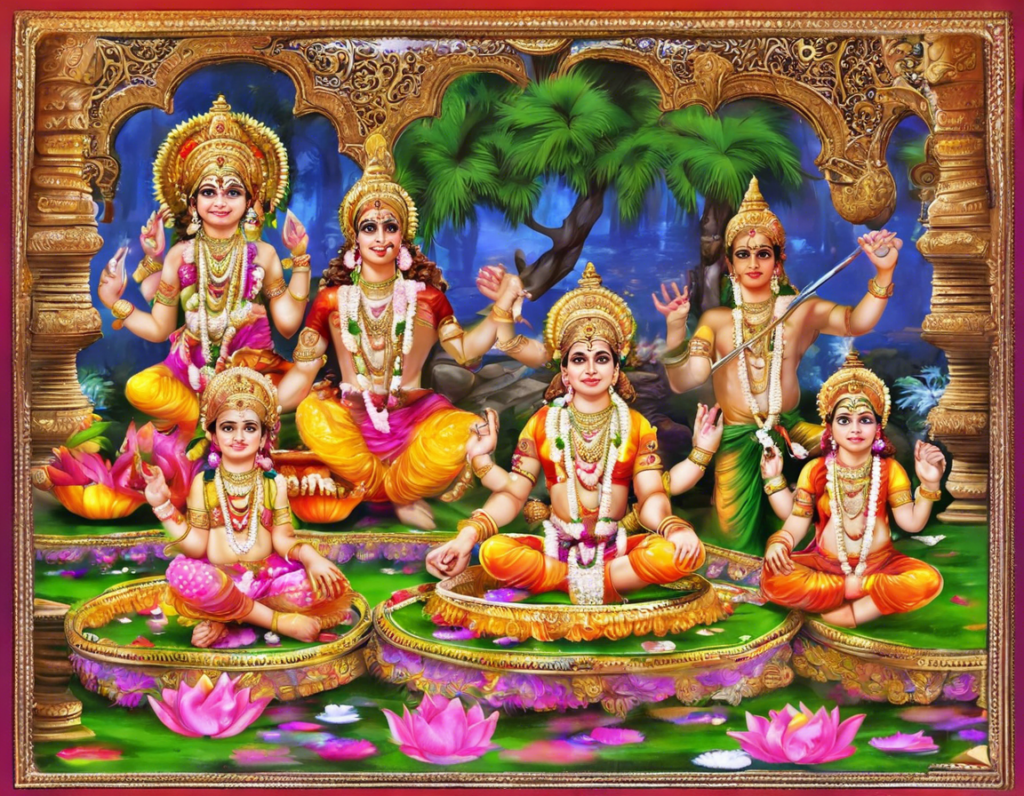The Sawan month, also known as Shravan, holds immense significance in the Hindu calendar. It falls during the monsoon season, usually between July and August. This period corresponds with the fourth month of the Hindu lunar calendar and is considered highly auspicious, especially for devotees of Lord Shiva.
The Legend of Sawan Month
According to Hindu mythology, the legend of Sawan month is deeply intertwined with the churning of the cosmic ocean (Samudra Manthan). During this churning, a lethal poison known as Halahala emerged, threatening to destroy the world. Lord Shiva, in his benevolence, drank the poison to save humanity. However, to ease the burning sensation in his throat due to the poison, the gods showered water from the holy river Ganga on him during the entire month of Sawan.
Observances and Rituals
Devotees observe various rituals and fasts during the Sawan month to seek the blessings of Lord Shiva. Mondays or Somvar are considered particularly auspicious, and many devotees observe Sawan Somvar Vrat (fast) on these days. They visit Shiva temples, offer prayers, and perform rituals like abhishekam (ritual bathing of Shiva Lingam) with water, milk, and other sacred substances.
Significance of Fasting
Fasting during the Sawan month is believed to bring immense spiritual benefits. It is believed to cleanse the body and mind, improve self-discipline, and enhance devotion to Lord Shiva. Fasting also symbolizes sacrifice and austerity, traits highly valued in Hindu scriptures.
Worship of Lord Shiva
Devotees offer bilva leaves, water, milk, honey, ghee, and fruits to Lord Shiva during this auspicious month. The Lingam, considered a representation of Shiva, is worshipped with great reverence. Rudrabhishekam, a special form of worship involving chanting of mantras and offerings, is performed to seek the blessings and grace of Lord Shiva.
Pilgrimage to Holy Sites
Many devotees undertake pilgrimages to sacred sites associated with Lord Shiva during the Sawan month. Places like Varanasi (Kashi), Amarnath, Somnath, and Srisailam witness a significant influx of devotees during this time. Taking a dip in holy rivers like the Ganga or visiting Jyotirlingas is believed to wash away sins and bestow divine blessings.
Celebrations and Festivities
Various regions in India celebrate Shravan Mahina with great fervor and enthusiasm. In North India, the Kanwar Yatra sees millions of saffron-clad devotees carrying holy water from the Ganga to offer at their local Shiva temple. This yatra symbolizes the devotion and faith of the devotees towards Lord Shiva.
Importance of Mantras and Chants
Chanting mantras like the Maha Mrityunjaya Mantra or Om Namah Shivaya is believed to invoke the blessings and protection of Lord Shiva during the Sawan month. These mantras are considered potent and help devotees in their spiritual journey.
Significance for Married Women
Married women observe Vrat during Sawan for the well-being of their families and for a blissful married life. The Sawan Somvar Vrat is considered auspicious for the long life and prosperity of husbands.
The Spiritual Essence
The Sawan month signifies a period of introspection, devotion, and spiritual growth. It is an opportunity for devotees to deepen their connection with Lord Shiva, seek His blessings, and strive towards self-improvement and enlightenment.
Frequently Asked Questions (FAQs)
Q1: Can anyone observe fasts during the Sawan month, or is it only for devotees of Lord Shiva?
A1: While the Sawan month is considered highly auspicious for Lord Shiva devotees, anyone can observe fasts and participate in rituals to experience the spiritual benefits of this sacred month.
Q2: What are the benefits of observing Sawan Somvar Vrat?
A2: Observing Sawan Somvar Vrat is believed to bring blessings, prosperity, and well-being. It is said to fulfill desires, remove obstacles, and grant spiritual growth.
Q3: Are there any specific dietary restrictions during the Sawan month fasts?
A3: Fasting devotees usually consume satvik food like fruits, milk, nuts, and vegetables. They avoid consuming non-vegetarian food, alcohol, and certain spices.
Q4: How can one participate in the Kanwar Yatra during the Sawan month?
A4: Devotees participating in the Kanwar Yatra carry holy water from the Ganga and offer it at their local Shiva temple. They travel on foot, often in groups, chanting hymns and bhajans.
Q5: Are there any specific prayers or rituals that one should perform during the Sawan month?
A5: Devotees can perform abhishekam of the Shiva Lingam with water, milk, honey, and other offerings. Chanting mantras like Om Namah Shivaya and Maha Mrityunjaya Mantra is also highly beneficial.
In conclusion, the Sawan month holds profound spiritual significance for Hindus, particularly devotees of Lord Shiva. It is a time for deepening faith, seeking blessings, and striving towards spiritual growth. By observing fasts, performing rituals, chanting mantras, and undertaking pilgrimages, devotees can enrich their spiritual journey during this auspicious month.
